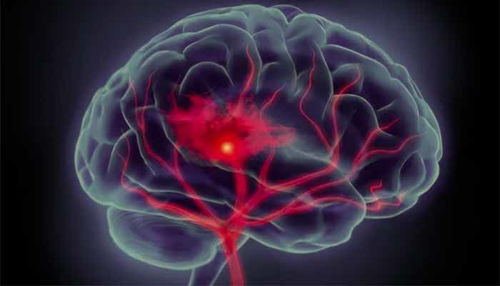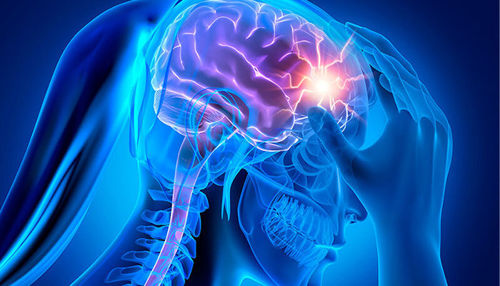Personality disorders are characterized by specific ways of perceiving, responding to, and relating to other people, which are permanent and unchanging traits. Because of these traits, a person behaves socially maladjusted in various situations.
BORDERLINE PERSONALITY DISORDER: General | Paranoid Personality | Schizoid Personality | Schizotypal Personality | Histrion Personality | Narcissistic Personality | Antisocial Personality | Borderline Personality | Dodging Personality | Addiction Personality | Obsessive Compulsive Personality | Passive-aggressive personality | Diagnosis | Treatment | Questions and Answers | Sources/references
Each person behaves towards others and reacts to events (personality traits) characteristically. In other words, everyone copes with everyday burdens in their own way, but they are always the same and repeated. Some people, for example, in a difficult situation, always respond by asking others for help, while others always solve problems themselves. Some minimize the importance of problems, while others see them as excessively difficult.
Although people tend to always respond to problems in the same way, most will try to solve them differently if the usual way does not work. In contrast, people with a personality disorder are so inflexible that they cannot adapt to the reality that pushes them. Their maladaptive ways of thinking and behaving begin early in adulthood, sometimes even earlier, and remain unchanged throughout their lives. Such people will likely have problems in their environment, relationships with others, and work.
Video Content: Psychiatric Explanation of Borderline Personality Disorder

People with a personality disorder are usually unaware that their behavior and thinking are inappropriate. On the contrary, they are usually convinced that everything is fine and correct right. Therefore, relatives or social services usually refer them to a psychiatrist because their behavior causes problems for others. The opposite happens to people who have anxiety disorders and, because of them, problems with themselves, while they do not cause them to others.
Suppose people with a personality disorder do seek medical help on their own (usually due to some disappointment). In that case, they are convinced that their problems were caused by other people or a particularly dire situation.
The types of personality disorders are paranoid, schizoid, histrionic, narcissistic, antisocial, borderline, fearful (avoidant), addictive, obsessive-compulsive, and passive-aggressive disorders. Dissociative identity disorder, sometimes called multiple personality disorder, is entirely different.
Paranoid Personality
People with paranoid personalities attribute their conflicts and hostility to others. They are usually cold and inaccessible in their relationships with others. They see hostile and malicious actions behind other people's completely everyday, innocent, or even positive actions. Their suspicion often provokes rejection or aggressive behavior in others, which convinces them again of the correctness of their original feelings.
Video Content: Paranoid Personality - Explained

People with paranoid personality disorder often resort to various legal procedures, significantly when they feel legitimately affected. But they are unable to see their part in the conflict. Although they usually work in relative isolation, they can be very efficient and conscientious.
People who are more prone to paranoid thoughts are those who, due to a particular defect or disorder (e.g., deafness), already live more alienated.
Schizoid personality
People with schizoid personality disorder are withdrawn, withdrawn, and lonely. They are emotionally cold and socially isolated. They often deal with their thoughts and emotions and fear closeness and intimacy with others.
Video Content: Understanding Schizoid Personality Behavior

They talk little but like to daydream and prefer theorizing over practical activities. They generally make life easier by fantasizing.
Schizotypal personality
Like schizoid personality disorder, people with schizotypal personality disorder are socially and emotionally withdrawn. In addition, they show strange thinking, perception, and communication. Although the quirks are similar to those of people with schizophrenia, and although schizotypal personality is sometimes detected in people with schizophrenia before they become ill, most adults with schizotypal personality disorder never develop schizophrenia.
Video content: schizotypal personality - is this the beginning of schizophrenia?

Some people with this disorder show signs of magical thinking; namely, they think they can control something that has nothing to do with a specific action. Such a person is, for example, sure that an accident will happen if he goes under the ladder or that he may harm others with anger in his mind. People with schizotypal personality disorder may also have paranoid thoughts.
Histrion Personality
People with histrionic (hysterical) personality disorder are very obviously attention-seeking and dramatic. They quickly establish relationships, but superficial ones. Their expression of emotions is exaggerated and childish. With it, they want to provoke sympathy and attention (often erotic or sexual) from other people. People with histrionic personality disorder tend to engage in sexually provocative behavior or give sexual meaning to non-sexual relationships.
Video Content: 8 Signs of a Histrionic Personality

Mostly, they don't want sex at all, but with their seductive behavior, they hide their desire to be dependent on someone and to be protected by that person. Some people with histrionic personality disorder are also hypochondriacs and exaggerate physical problems to get the attention they need.
Narcissistic personality
People with narcissistic personality disorder have a sense of multiple values and are overly confident in their worth and importance, which psychiatrists call "grandiosity." They can be susceptible to failure, defeat, or criticism. When faced with a setback that affects their high self-esteem, they quickly become enraged or severely depressed. They expect other people to admire them because they are convinced of their multi-value about others.
Video content: more about the narcissistic personality

They also suspect that others envy them. They feel they have every right to meet their needs without waiting. That's why they use other people who they believe are not as important as they are. Their behavior is often offensive to others. That is why others perceive them as introspective, pretentious, and selfish.
Possible consequences of personality disorders
• The behavior of people with severe personality disorders is risky and can lead to physical diseases, such as addiction to alcohol or other drugs; their behavior is self-destructive, and their sexual behavior is dangerous; they tend to be hypochondriacal; they are constantly in conflict with social norms.
• In stressful situations, they may develop a mental disorder, the type of which (e.g., anxiety, depression, or psychosis) partly depends on the type of personality disorder.
• They do not follow the instructions for treatment, but if they do, they respond to medication worse than other people.
• They usually have bad relationships with their doctors, refusing to take responsibility for their behavior or showing open distrust of the doctor. The doctor can react similarly with mistrust and criticism and finally reject such a person.
Antisocial Personality
People with antisocial personality disorder (sometimes called psychopathic or sociopathic personalities) are primarily men who are utterly insensitive to the rights and feelings of other people. Others are used for material gain or personal satisfaction. So they behave differently than people with narcissistic personality disorder, who do so because because they think they are better than others. A characteristic of antisocial personality is that they react to conflicts impulsively and irresponsibly. They do not tolerate disappointment well and are sometimes hostile or violent. Despite the trouble or harm they cause others with their antisocial behavior, they show no remorse or guilt. Instead, they blame others for their behavior. They shape their relationships with others through dishonesty and deceit. Disappointments and punishments do not change their behavior.
Video content: Antisocial personality - causes, symptoms, diagnosis and treatment

People with antisocial personality disorder tend to abuse and become addicted to alcohol and other drugs, as well as deviant sexual behavior and promiscuity. They are often punished with imprisonment. They are incapable of long-term employment and usually move from place to place. In their original families, they often witnessed antisocial behavior, substance abuse, divorce, or physical violence. They were emotionally neglected and often physically abused as children. They have a shorter-than-average life expectancy, but if they survive, their disorder eases with age.
Borderline personality
People with borderline personalities - primarily women - fluctuate in mood, behavior, and interpersonal relationships (which are often stormy and intense), and self-esteem also fluctuates. Such a personality begins to show itself early in childhood due to its lack of necessary care. As a result, she feels empty and angry and needs a lot of emotional warmth.
Video content: 9 Traits of Borderline Personality

When people with this disorder feel loved, they still feel lonely and rejected; they often need help for depression, substance abuse, eating disorders, and past abuse. Their mood changes dramatically when they fear that the person they love might leave them. They often display inappropriate and intense anger accompanied by extreme fluctuations in their views of the world, themselves, and others. They quickly go from white to black, from hate to love, or vice versa. They cannot remain moderate or neutral. When they feel abandoned and alone, they may wonder if they even exist (meaning they don't feel real). They may become desperately impulsive, resort to promiscuity, or abuse psychoactive substances. They may occasionally lose touch with reality and become psychotic with delusions and hallucinations.
People with this disorder often go to their doctor and report their crises or ill-defined problems. Nevertheless, they do not adhere to the doctor's treatment instructions poorly. In contrast to people with other personality disorders, they very often go to psychiatrists because they constantly need someone to take care of them.
Dodge Personality
People with avoidant (fearful) personality disorder are hypersensitive to rejection, so they fear even starting a new relationship or anything new where they might experience rejection or disappointment. They want affection and acceptance. That's why they are often lonely and don't know how to communicate freely with others.
Video Content: Avoidant Personality - 7 Symptoms

In contrast to those with borderline personality disorder, they do not react to rejection with anger but with shyness and apprehension. Anxious personality disorder is similar to social phobia.
Addiction Personality
People with addictive personality disorder shift decisions and responsibilities to others. In doing so, they allow the needs of others to be met before their own. They lack confidence in themselves and their ability to take care of themselves. They often complain that they cannot decide or do not know what to do.
Video content: Dependent personality - symptoms that appear

They don't want to express their mnenja, even though they have it, because they fear offending the people who need them. People with other personality disorders often have addictive personality traits, but these traits tend to be masked by the dominant features of the other disorder. Sometimes, an addictive personality develops in adults with some chronic disease.
Obsessive-compulsive personality
People with obsessive-compulsive personality disorder are reliable, orderly, and very precise, but they are unable to adapt to change. They carefully analyze the problem in detail, which hinders them from making decisions. Although such personality traits are desirable in the Western cultural environment, people with this personality disorder take their responsibilities so seriously that they cannot tolerate any mistakes and pay attention to details to the extent that they do not complete their tasks. As a result, they become too concerned with ways to complete a task, forgetting its purpose. Responsibilities cause them anxiety, and they rarely enjoy the satisfaction of their achievements.
They are often very successful, especially in science and other intellectually demanding activities-
|
Defense mechanism |
Description |
Outcome |
|
Dissociation |
Enables a person to numb current emotions. |
It causes a temporary but strong feeling that one is separate from himself, does not exist, and lives in an unreal world. This feeling can induce a dream-like state (fugue or trance) and lead to self-destructive behavior. |
|
Projection |
Enables a person to attribute their feelings or thoughts to others. |
It leads to prejudice, suspicion, and excessive concern about perceived dangers. |
|
Fantasizing |
Enables escape from conflicts and painful reality (e.g., loneliness). |
Instead of getting involved in the outside world and dealing with people, he experiences himself in his imagination. |
|
Reaction |
Enables a person to avoid a painful situation or a painful emotion. |
It leads to actions that are often irresponsible, reckless, and unwise. |
|
Splitting |
It allows man's white or all-or-nothing perception of the world to divide people into groups of idealized benefactors and denigrated villains. |
It avoids the discomfort of feeling both love and anger towards the same person and feelings of insecurity and helplessness. |
-cities where order and attention to detail are desirable. Otherwise, they feel emotionally detached and do not feel at ease in interpersonal relationships and unpredictable situations in which they cannot control what is happening or rely on others.
Passive-aggressive personality
The behavior of a person with passive-aggressive personality disorder is covertly controlling or punitive. Often, such behavior manifests itself as hesitation, inefficiency, and laziness.
Video content: passive-aggressive personality - how to deal with the problem?

Such people often agree to do a specific task they don't want to but then do everything they can to finish it. Thus, the behavior of a person with this disorder usually indicates hidden hostility.
Diagnosis
A doctor diagnoses a personality disorder when he finds that a person exhibits maladaptive thinking and behavior. Sooner or later, deviant behavior becomes apparent because such a person stubbornly insists on his behavior despite the unpleasant consequences.
The doctor also notices inadequate ways of dealing with everyday problems, called defense mechanisms. Although everyone unconsciously uses defense mechanisms, a person with a personality disorder uses them disproportionately well and immaturely.
Treatment
Although treatments vary depending on the type of disorder, certain general principles apply. Since most people with a personality disorder do not see any need for treatment, such people are not motivated for it. So, someone else has to initiate the treatment. A friendly but firm confrontation can help a person with a personality disorder with the consequences of his behavior, which his peers can successfully provide and, even better, by a psychotherapist.
The psychotherapist repeatedly warns the patient about the undesirable consequences of his disturbed thinking and behavior. Sometimes, she limits his behavior and keeps him facing reality. The cooperation of the patient's family is essential and valuable, as the group's influence can be very effective. Various treatment programs for people with personality disorders recommend living in communities in unique homes, treatment in self-help groups, and participation in therapy clubs.
Uidi people with a personality disorder may suffer from anxiety or depression; then they hope that appropriate medicines can help them. However, they are rarely found to be effective against the anxiety and depression that result from a personality disorder. Treating such people with drugs can further complicate their tendency to abuse drugs or attempt suicide. Suppose a person with a personality disorder suffers from some other mental illness or disorder, e.g., phobia, depression with psychotic symptoms, or panic disorder. In that case, he is treated with appropriate drugs, although they will only be partially effective.
Changing personality takes a lot of time. No short-term treatment can eliminate a personality disorder, but it can quickly achieve changes in some personality traits. With behavioral therapy, we can eliminate frivolity, social isolation, lack of self-confidence, or emotional outbursts. An essential part of successful personality disorder treatment programs is long-term psychotherapy. Some personality disorders, such as narcissistic or obsessive-compulsive disorders, are best treated with psychoanalysis. Others, such as antisocial and paranoid, are generally not treatable at all.
Questions and answers
What are the nine symptoms of borderline personality disorder (BPD)?
Nine symptoms of MOM:
- fear of abandonment - people with MOM often fear being abandoned or left to fend for themselves,
- unstable relationships,
- vague or changing self-image,
- impulsive, self-destructive behavior
- self-harm,
- extreme emotional swings,
- chronic feelings of emptiness,
- explosive anger[1].
What is a person with borderline personality disorder like?
People with MOM are often "on their knees." They have a high level of distress and anger, so they can also be easily offended. They struggle with beliefs and thoughts about themselves and others, which can often cause distress in many areas of their lives. People living with BPD often have intense fears of instability and abandonment[2].
Can a person with MOM be average?
This does not mean that a person with this disorder cannot live a healthy life. Many people diagnosed with MOM are highly functional. Living with someone suffering from MOM can be extremely difficult if the condition is not managed[3].
Sources and references
Extensive health manual for home use, Youth Book Publishing House
- Borderline Personality Disorder (BPD) - https://www.helpguide.org
- Everything You Need To Know About Borderline Personality Disorder - https://www.mcleanhospital.org
- Living with Borderline Personality Disorder (BPD) - https://alterbehavioralhealth.com












 Facebook
Facebook
 Instagram
Instagram
 info@moja-lekarna.com
info@moja-lekarna.com

